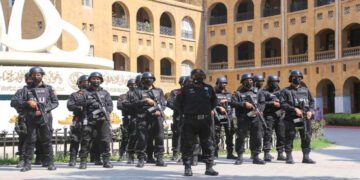![]() Follow Us on Google News
Follow Us on Google News
ISLAMABAD: The Free and Fair Election Network (FAFEN) has identified multiple constitutional, legal and operational challenges in conducting an early election in the country.
In a statement, FAFEN said early election might not be a smooth process in view of several constitutional and legal complications. It said the Supreme Court would hopefully take a prompt decision about the constitutionality of the measures leading to the dissolution of the National Assembly as a delay would accrue collateral issues arising out of the constitutional deadlock.
“Public confusion and political divisions that have already arisen as a result can potentially translate into violent expression. Political parties have a great responsibility to manage their workers and make sure that political disagreements do not turn into violence especially ahead of an early election,” it added.
It added the most critical factor for the legitimacy of any election would be the completion of the Election Commission of Pakistan (ECP). The ECP members from Punjab and Khyber Pakhtunkhwa had yet to be appointed.
“The constitutional procedure for the appointment of Members of the Commission after the dissolution of the National Assembly under a caretaker setup remains unclear under Article 213 (2B), which requires the Prime Minister and the Leader of the Opposition to initiate the process in a specially formed committee comprising only senators,” FAFEN said.
It said another concern was the constitutional and legal status of the current delimitation of National and Provincial Assembly seats since it was carried out on the basis of provisional results of the 2017 census.
As per Section 17(2) of the Elections Act, 2017, FAFEN said fresh delimitation on the basis of the last preceding census was essential for the legality of future elections. It noted the process of delimitation could not be completed within three months as per the requirements of Chapter III of the Elections Act, 2017 and corresponding rules.
Similarly, it added, confusion continued to shroud the practicality and enforcement of the recent amendments to the Elections Act, 2017 pertaining to the use of Electronic Voting Machines (EVMs) and the facilitation of overseas Pakistanis to vote in their country of residence, which were passed by the Joint Sitting of the Parliament.
FAFEN said the under-registration of women on the electoral rolls was also one of the major issues that the ECP had started to successfully address through targeted campaigns. However, there were still 11.37 million women, who remained unregistered as voters.
In case the elections are called within three months, it noted, the electoral rolls would have to be frozen 30 days before the announcement of the election programme as per Section 39 of the Elections Act, thereby rendering millions of women voters disenfranchised.
Another challenge to early elections, FAFEN noted, was the operational and logistical preparation by the ECP involving recruiting and training around one million polling staff, and printing, publishing and transportation of election materials as well as selection of locations for more than 10,000 polling stations that are to be established due to the addition of more than 15 million voters on the electoral rolls since GE-2018. The quality of such critical electoral processes was vital to the integrity of any election.

























